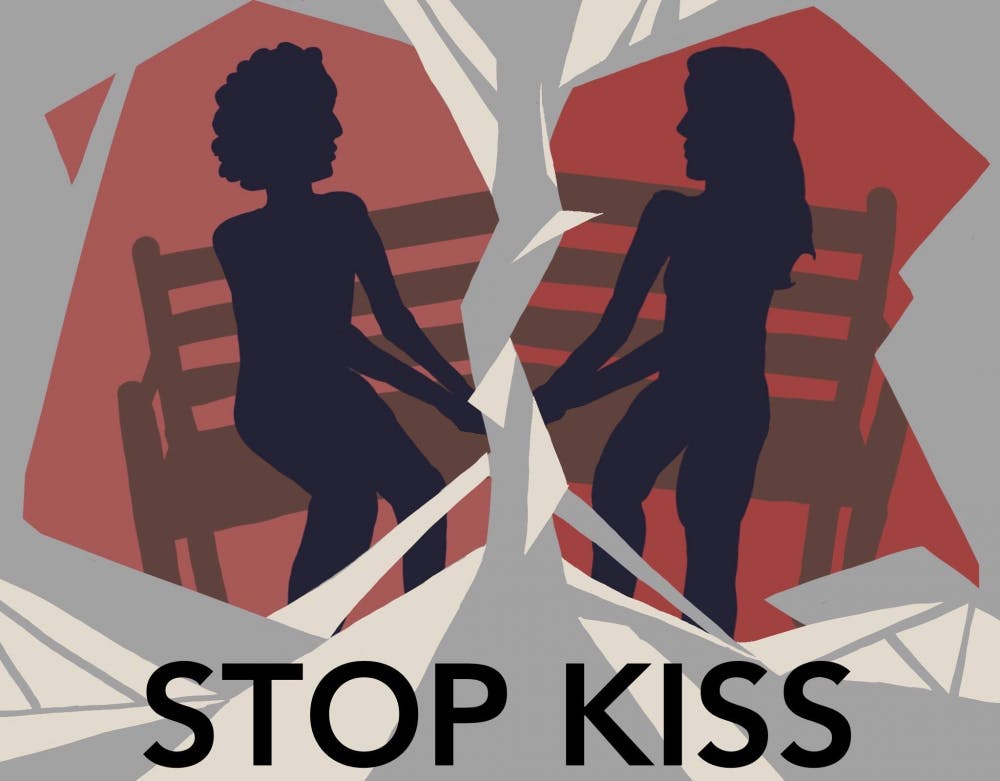Behind every work of theater on this campus, there’s somebody calling the shots. Someone who reigns over every creative detail from the moment the curtains open to the final bow. The puppetmaster, the head honcho, the “let’s run that scene one more time” guy — the director.
Being a director is an intense experience, and doing it for the first time can be beyond intimidating. The Daily Princetonian got in touch with Regina Zeng ’18, director of Theatre Intime’s upcoming production of “Stop Kiss,“ to find out how she approached her first time directing a full-length play.
Daily Princetonian: This is your first time directing a full play. How has the process differed from smaller directing projects you've worked on?
Regina Zeng: I think what is most different about directing a bigger project is that there are more moving elements to work with, such as transitions and set design that needs to be figured out, so I end up spending much more time on the technical elements of the show as opposed to just focusing on the acting, which I was able to do with smaller projects.
DP: How would you describe your personal directing style?
RZ: I would say that my directing style is largely collaborative. I invite input and opinions from the actors about their characters' motivations, tactics, etc. Sometimes, an actor will point out a detail from the script that I had completely overlooked, so I have really enjoyed working alongside my actors as much as possible.
DP: Why did you choose “Stop Kiss” as your full-length directorial debut?
RZ: I just really fell in love with the play when I did a scene from it for an acting class my freshman year, and I knew that if I ever had a chance to direct a full show, I would want to do “Stop Kiss.”
DP: “Stop Kiss” is a show that tackles some heavy topics. How did that affect your approach to directing?
RZ: Since “Stop Kiss” tackles some pretty heavy topics, I definitely made sure my actors were aware of those during the rehearsal process and had conversations with them about the topics so that we did them justice.
DP: “Stop Kiss” rests heavily on the shoulders of its two female leads. How did you approach the casting process, seeking your ideal Callie and Sara?
RZ: During auditions and callbacks, I made sure to have the actors read from a diverse set of sides representing varying emotional states throughout the play so that I could get an adequate sense of the actors' range before making any decisions. Chemistry was also an important factor, so I paired the actors up multiple times to see them read with each other.
DP: What has been the greatest difficulty you've run into while directing “Stop Kiss”?
RZ: I think the greatest difficulty has been coordinating set design and costuming. Because this play takes place over a few months, it was really important that the set and costumes reflect that transition throughout the play. There are many small moving pieces so collecting and organizing everything took a lot of time and energy.
DP: Can you share a fun behind-the-scenes memory from the rehearsal process?
RZ: In one particular scene, there is a long moment of silence that begins the scene, but a lot happens during that moment of silence. I spent about half an hour rehearsing those 30 seconds with the two actors and by the end, we were all laughing and exhausted, but I think the scene turned out pretty nicely.






